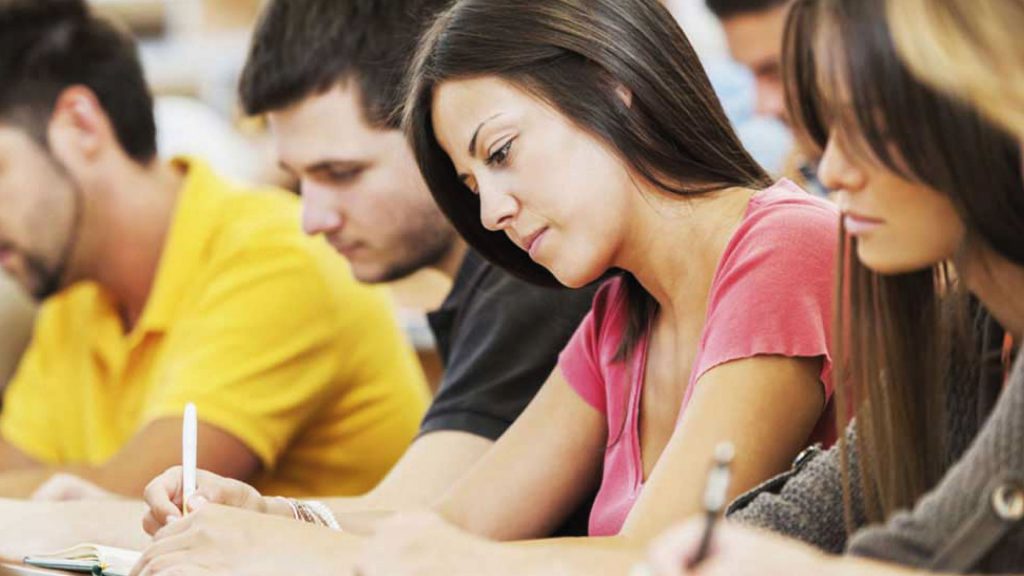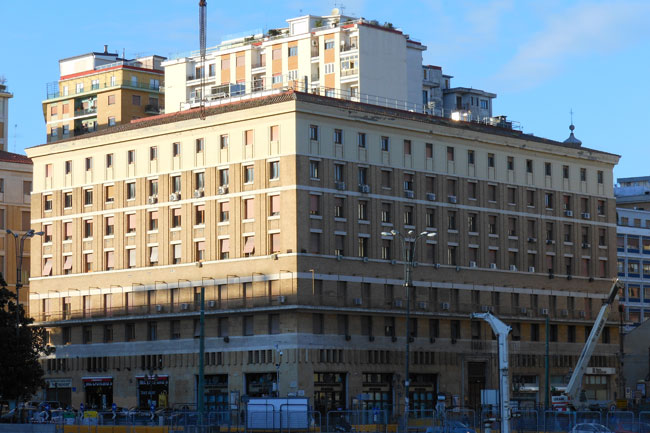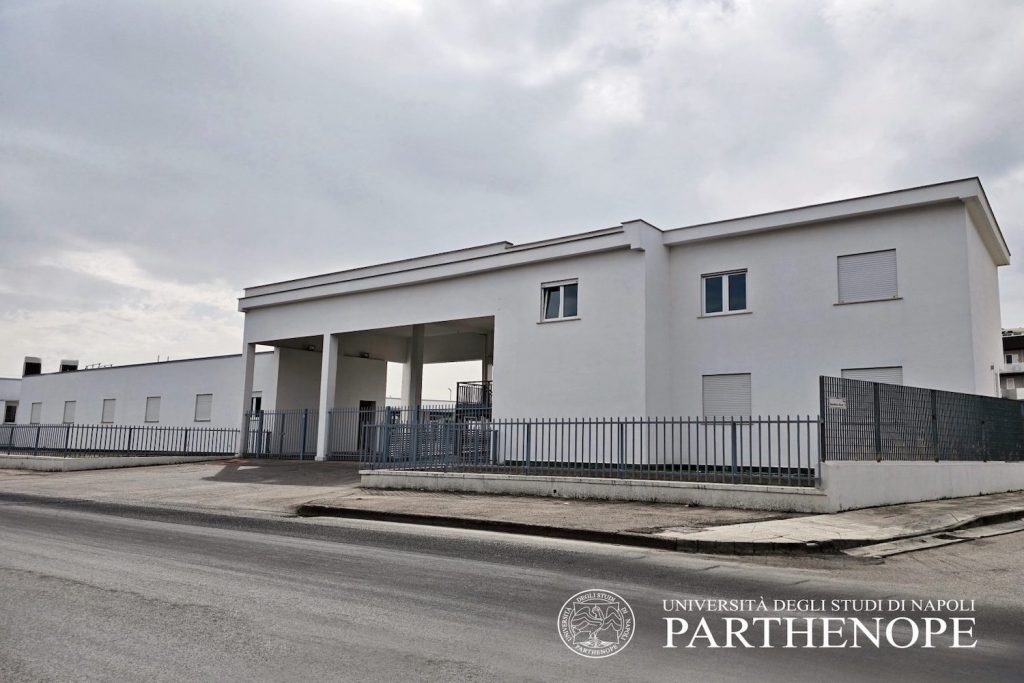
The degree programme aims to train professionals with scientific knowledge and technical skills in various fields of individual and group sports activities, in order to organise and implement physical and sports activities, as well as to promote sports and exercise activities of a recreational and inclusive nature.
Graduates in “Sports Sciences” based in Caivano are professionals who can work as employees or freelancers in various fields, such as public and private structures and the third sector in the field of personal services and associations with inclusive aims. This professional figure can find employment in sports clubs, non-profit organisations, public and private bodies focused on personal services for the development, maintenance and recovery of psycho-physical well-being through sport and the promotion of active lifestyles.
The degree programme in Sports Sciences based in Caivano (NA) takes a multidisciplinary approach to provide graduates with the scientific knowledge and technical skills necessary in the various fields of individual and group sports activities, with particular reference to sports disciplines, management and the promotion of active lifestyles. The course also provides training in the fields of psycho-pedagogical and social sciences, as well as training in organisational-managerial, biomedical and legal-economic areas, preparing professionals who are able to operate across the board in the diverse world of physical education, physical exercise, sport and sports management.
Course Duration: 3 anni
Number of Exams: 20
Total Credits: 180
Admission: Programmed
Double Degree: Yes
Degree Class: L-22
Department: Medical, Movement and Wellbeing Sciences
LEARNING OUTCOMES
The course in Sports Sciences based in Caivano will enable graduates to acquire the scientific knowledge and technical skills necessary in the various fields of application of individual and group sports activities, with particular reference to the sports, managerial, educational and active lifestyle promotion disciplines. To this end, during the training course, students will have the opportunity to acquire skills related to exercise and sports activities at affiliated sports facilities through direct interaction with experts in the Sports and sports sector.
At the end of the course, graduates will have a solid basic education in the field of Sports and sports sciences, as well as skills related to the understanding and management of Sports and sports activities of various kinds. They will also have adequate skills and tools for the management of individual and/or group Sports and sports activities. Graduates will also have basic biological, biochemical and medical knowledge and knowledge of the psychological, pedagogical, sociological, legal, organisational, managerial and economic principles necessary to communicate effectively with those practising Sports and sports activities, motivate them appropriately and place the activities they carry out in the right socio-economic, organisational and legal context.
The degree course also aims to train professionals such as experts in educational and learning services to be employed in public and private organisations involved in social recovery functions such as risk prevention and the promotion of social inclusion in all its forms.
In addition to being acquired through lectures and related technical and practical activities, students will learn by participating in seminars and workshops on various aspects of physical activity and sport.
Comprehension skills will be assessed through mid-term self-assessment tests during the various teaching modules. At the end of the course, graduates will therefore have a solid and up-to-date basic knowledge and a good understanding and evaluation of Sports and sports sciences and techniques and other disciplines closely related to them. In addition, graduates will have developed a good ability to understand and evaluate the physical exercises proposed and the potential differences in effect, taking into account the specific characteristics of gender, age, and physical and mental condition of the practitioner, even in group situations. In particular, graduates will know the biological and biomechanical bases of movement and adaptation produced by physical exercise depending on the type, intensity and duration of the exercise, and will be able to use the main Sports and sports techniques, measurement and evaluation methodologies (e.g. in terms of the effectiveness of the intervention), also with the aim of designing, coordinating and implementing simple programmes for functional recovery or muscle strengthening.
In short, graduates will be able to conduct individual and group physical activity programmes designed on the basis of scientific principles, characterised by the use of appropriate functional assessment and follow-up methods and aimed at achieving objectives that are agreed upon with the participant. They will also be able to promote the adoption of active lifestyles and fair sports practices free from the use of practices and substances that are potentially harmful to health. Graduates will also be able to work in a multidisciplinary setting on projects aimed at social inclusion through the use of sport and games. Knowledge and understanding are developed through a combination of theoretical subjects and practical training activities, some of which are carried out at external institutions. Assessment is mainly carried out through exams.
Further information
All information about the course, from admission to the final exam, for all students interested in enrolling in the Bachelor’s Degree Course in Sports Sciences.
Admission requirements
To be admitted to the degree programme, applicants must hold a secondary school diploma or other equivalent foreign qualification. Enrolment in the programme is open access on a local basis, until all available places are filled, and there is no entrance examination. There are 180 places available, of which 3 are reserved for students/athletes (dual career). Basic knowledge of scientific subjects (biology, chemistry, mathematics and physics) at a level corresponding to upper secondary school programmes is required. Students enrolled in the first year of the course will be required to take a test of their initial knowledge of first-year subjects, such as Anatomy, Human Biology, Human Biochemistry and Business Economics. An insufficient assessment will require the student to pass the Additional Educational Requirements (OFA) through development and consolidation courses organised by the degree programme in order to eliminate the identified requirements and ensure the best possible progression in the study programme. In the event of an insufficient assessment, the student will be adequately informed and effectively supported to pass the OFA through appropriate remedial courses.
Internships and placements
As part of the degree programme in ‘Sports Science’ Class L22 based in Caivano, students carry out their internships at affiliated facilities, such as sports centres, amateur sports associations, sports clubs, sports organisations, as well as all organisations operating in the field of sports science and sports and in sectors connected and/or related to the field of sports science and sports.
The University Placement Office provides advice and guidance to students in choosing the external training courses best suited to their needs and professional objectives, and in preparing the training project indicating the content and methods of carrying out the internship activities. The Placement Office handles all the administrative aspects and organisational stages of the procedure, in accordance with current national and regional legislation, from the signing of the agreement with the host organisation to the ex-post evaluation of the internship experience. The office therefore performs a fundamental intermediary function, providing services to both students and graduates, as well as to the companies and public or private bodies with which it interacts, considering all sectors of activity, especially the field of sports sciences in the strict sense, with the educational, training and social fields in general, and including all sectors connected and/or related to the sports sector.
Final exam
The Degree Course in ‘Sports Science’ based in Caivano includes a final exam, worth 3 CFU credits, at the end of the course, consisting of an oral discussion on a topic agreed with the supervisor in a subject related to the curriculum.
Specifically, the final exam for the Bachelor’s Degree in Sports Science (Class L-22) consists of an oral discussion held in public before the Degree Committee. The topic of the final exam is assigned by the supervisor, after consultation with the student, and communicated to the student at least 60 days before the discussion. The lecturer must be chosen from among those who teach a course included in the student’s Study Plan.
Students may request to book the final degree examination once they have earned 120 ECTS credits. In order to be admitted to the final examination, students must have passed all the exams required by their Study Plan and earned 177 ECTS credits at least twenty days before the Degree Session.
The final exam is assessed by the Degree Committee appointed by the Head of the relevant Department, established in accordance with the procedures set out in the new University Teaching Regulations, which came into force on 3 February 2020.
The final degree mark will consist of the basic mark derived from the student’s academic career, added to the mark awarded for the final examination by the Degree Committee and the bonus mark awarded to the individual student, as described in the Course Teaching Regulations.
Prof.ssa CARBONARA Gabriele
gabriele.carbonara@uniparthenope.it


Via Sannitica – 80023 Caivano (Na)
Università degli Studi di Napoli “Parthenope”
Via Amm. F. Acton, 38 – 80133 Napoli (NA)
P.IVA 01877320638 | C.F. 80018240632
2021 – Università degli Studi di Napoli Parthenope – All Right Reserved